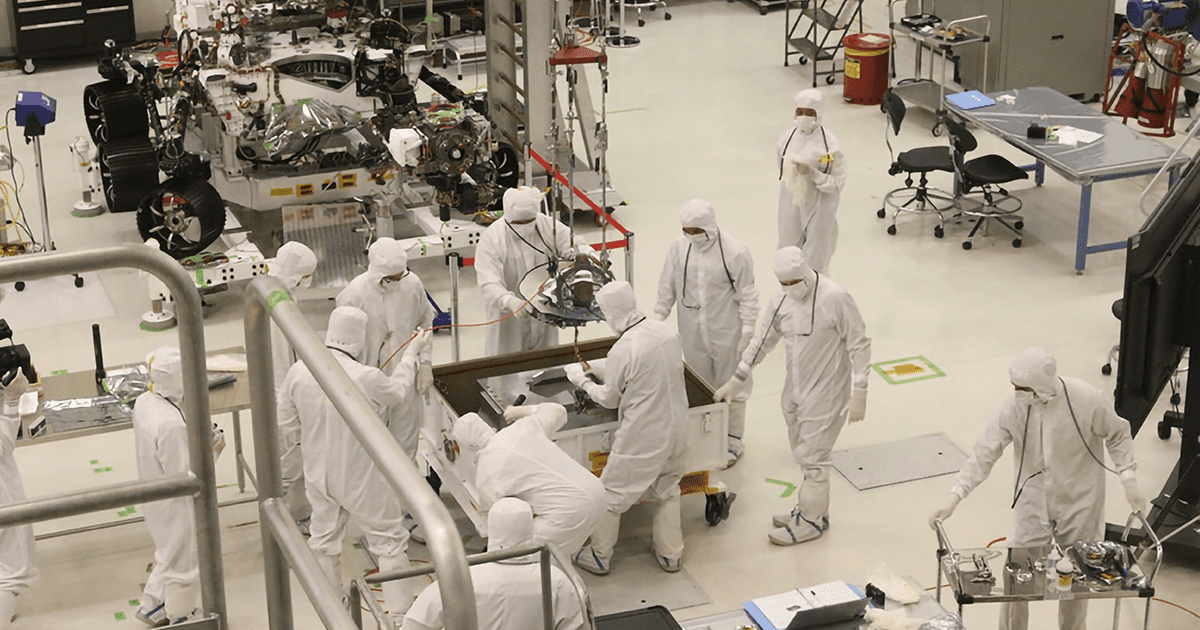Since 2009, China has been increasing its tax support for R&D through tax super deductions, both for small and large enterprises. Thus, many enterprises have benefited from the super deduction R&D policy, allowing tax deductions for up to 75 percent. This policy is mainly geared toward boosting innovation and improving high-quality development among enterprises, especially in the manufacturing sector.
Have a look at our previous article on Advanced Manufacturing Industries in China – Tax Update
While the 75 percent super deduction remains for non-manufacturing enterprises, the latest R&D tax guideline provides more support for manufacturing enterprises. Read to find out!
New R&D super deductions for manufacturing enterprises
China’s State Taxation Administration has announced an additional rate for tax deductions on the R&D expenses of manufacturing enterprises. Previously at 75 percent, enterprises in the manufacturing sector can now enjoy 100 percent tax deductions on their R&D expenses.
What does it mean by super deduction?
Enterprises eligible for a super deduction can deduct the amount (the rate of super deduction) to their taxable income. For instance, with the new policy, if a manufacturing company spent RMB 100,000 on its R&D, it can then deduct RMB 200,000 from its taxable income. Announcement No. 13 released on March 31, 2021, outlines the details of this policy.
Read more about China’s Innovation Boost for SMEs and Manufacturing R&D
Meanwhile, if the manufacturing company has incurred assets from conducting R&D activities instead of expenses, therefore, the assets should be amortized before tax at 200 percent of the cost of R&D assets as mentioned.
Effectivity of super deductions
The new rate of tax deductions will have applied since January 1, 2021. On the other hand, non-manufacturing companies can still avail of the 75 percent deductions for three years before December 31, 2023.
Pre-claim of super R&D tax deductions
According to the implementation rules, eligible enterprises can “pre-claim” their super deductions for the first half of a tax year. For instance, they can apply for pre-claim during their monthly or quarterly tax filing in September 2021.
Scope of R&D and business allowed to claim super deductions
Not all companies may be able to enjoy the new R&D deductions policy. According to the guidelines, certain industries cannot claim super deductions on their R&D expenses.
- Tobacco manufacturing
- Accommodation and catering
- Wholesale and retail
- Real estate
- Leasing and business services
- Entertainment
Moreover, the pre-tax deduction policy (Caishui [2015] No. 119) does not cover certain R&D activities including:
- Routine upgrade of the product (services);
- Direct application for research achievements, for example, direct adoption of new technology, material, device, product, service, or knowledge which have been already disclosed;
- Technical supporting activities for customers after commercialization;
- Repetitive or simply changes for an existing product, service, technology, material, or technological process;
- Market research, efficiency survey or management study;
- A part of an industrial process or regular quality control, testing analysis, and maintenance; and
- Studies on social science, art, or humanities.
Identifying eligible manufacturing enterprises for R&D super deductions
Manufacturing enterprises can enjoy the new preferential treatment based on their business income. If the manufacturing company’s main business income accounts for more than 50 percent of their total income while engaged in R&D manufacturing, they are eligible to apply for the additional deductions.
Moreover, eligible companies can choose to avail of the additional deductions in the first half of the year. On the other hand, they can choose not to avail it and instead enjoy during the annual returns in the following year.
Which income sources qualify for the eligible total income?
- Sale of goods
- Provision of labor services
- Transaction of property
- Dividend, bonus, and other equity investment proceeds
- Interests
- Rentals
- Royalties
- Income from accepted donations
- Other incomes
R&D super deductions for non-manufacturing enterprises
The Chinese government also extended the preferential policies for R&D expenses of enterprises other than those involved in manufacturing (except the ones mentioned earlier). Until December 31, 2023, non-manufacturing enterprises can still enjoy the super deduction of 75 percent of the number of R&D expenses actually incurred.
Meanwhile, if the non-manufacturing company has incurred assets from conducting R&D activities instead of expenses, therefore, the assets should be amortized before tax at 175 percent of the cost of R&D assets.
Contact us
S.J. Grand provides advisory and support on the business set up as well as tax and accountancy services for foreign-invested companies in China. We assist foreign companies with tax optimization strategies to take advantage of China’s various preferential policies. Contact us to get you started.
Moreover, we have been at the forefront of promoting full automation of business operations, especially for startups and SMEs. We have introduced our Cloud-based advanced solution, Kwikdroid, to make business transactions easier with us, no matter what type or size of the company. Visit our Kwikdroid page to learn more about the services we offer.
You may be interested to read about how to manage your company remotely using the advantages of Kwikdroid. Check it out!







